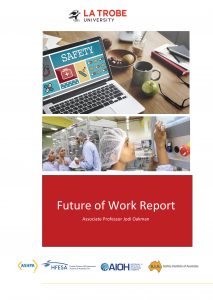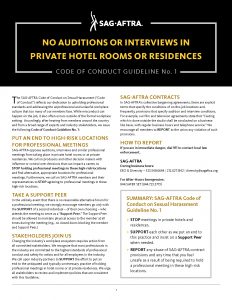 ASHPA, the Australian Safety and Health Professional Associations has been quiet for a while but sponsored La Trobe University to undertake some research into the future of work and its impacts on occupational health and safety (OHS) professionals, hygienists, ergonomists and others. It is an interesting insight into the thoughts and perspectives of safety and health professionals but it also cries out for interpretation and analysis.
ASHPA, the Australian Safety and Health Professional Associations has been quiet for a while but sponsored La Trobe University to undertake some research into the future of work and its impacts on occupational health and safety (OHS) professionals, hygienists, ergonomists and others. It is an interesting insight into the thoughts and perspectives of safety and health professionals but it also cries out for interpretation and analysis.
The report, not yet available online, is based on the responses of 733 safety and health professionals to an online survey. The statistical profile of the profession in Australia is useful and the key findings

 Recently Australian media was entranced with an
Recently Australian media was entranced with an  Australian research usually makes use of the industrial and activity categories created by the
Australian research usually makes use of the industrial and activity categories created by the 
 The
The